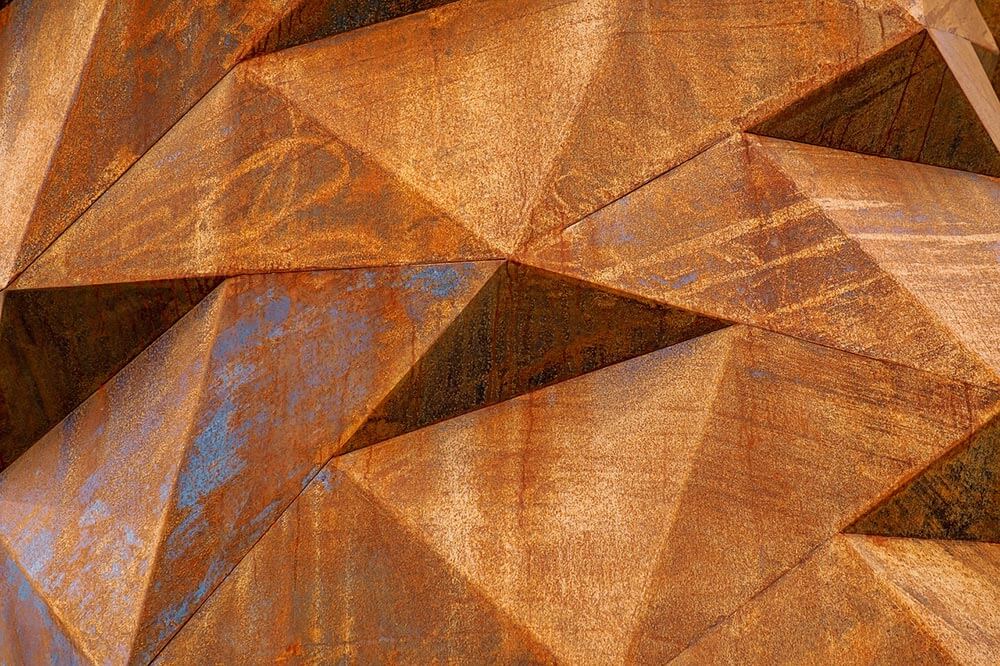
What Is Corten Steel?
Corten steel is a ‘weathering steel’ which is fabricated by mixing a combination of steel and alloys. This blend causes the surface of the sheet to develop a rusted appearance when exposed to the elements. The oxidised coating on the exterior is self-protecting and prevents rust from penetrating deeper and damaging the interior layers of the panels. Due to its rustic appearance, corten steel is favoured for outdoor construction projects, landscape architecture and artistic sculptures.
Where Are Corten Steel Retaining Walls Used?
A corten steel retaining wall can have a multitude of uses, acting as both a garden design feature and a necessary practical structure.
In steeply sloped areas, a corten steel retaining wall is used to bear the load of the soil on the incline, keeping it safely in place. This can be done by placing one strip of panels along the bottom of the slope, or for a more striking effect, the steel supports can be tiered in horizontal layers down along the hill.
Retaining walls are also used to protect the foundations of properties built on sliding hills. Sliding hills are vulnerable to erosion, meaning soil can be either washed away from a downhill foundation or else compacted around an uphill foundation.
Corten retaining walls make good garden or boundary walls for houses built on elevated sites, as they afford the property a measure of protection against the elements.
What Are the Benefits of a Corten Steel Retaining Wall?
Aside from aesthetic features, a corten steel retaining wall has several advantages such as-
- Making sloped land usable. Retaining walls allow you to create areas of level surface amid sloping hills. This is useful to both homeowners and to farmers who own land in hilly regions
- Helping to manage water runoff. Strategically positioned retaining walls can redirect the flow of rainwater, protecting the land from oversaturation and flooding
- Steel is one of the easiest materials to recycle, so a corten steel retaining wall is an environmentally friendly option
- It is much quicker to erect a steel retaining wall than it is to build a reinforced concrete wall
- Corten walls are suitable for all soil types
- Steel retaining walls are load-bearing from the moment they are installed
- When erecting a steel wall, there is no need to dig out foundations
- Corten walls are extremely durable, sturdy and require little maintenance
Disadvantages of Corten Steel Retaining Walls
Steel retaining walls are strong and resilient by nature, so unlike their concrete counterparts, it is unusual for them to collapse. However, it can occur in instances where the load-bearing capacity has been calculated incorrectly, resulting in too much load being placed behind the wall.
With corten steel walls, another factor to consider is that if the outer layer of the sheet hasn’t finished oxidising before installation, any moisture can cause the rust to run off and stain the surface below.
Here at RW Steel, we stock a full range of retaining wall products to suit every project and budget. Contact us here with any queries or click here for a free no-obligation quote.